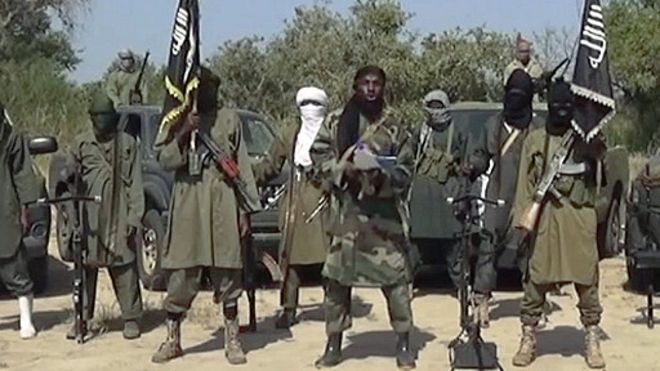ABUJA (Thomson Reuters Foundation) – Talks between Nigeria and Boko Haram militants over the release of some 200 schoolgirls abducted from Chibok almost three years ago could extend to negotiating peace in the conflict-hit northeast, said a mediator involved in the discussions.
In October, the Islamist insurgents freed 21 of around 220 girls they kidnapped in April 2014 from the northern town of Chibok following mediation by Switzerland and the International Committee of the Red Cross (ICRC).
Mediator and lawyer Zannah Mustapha said negotiations with the group, which has waged a seven-year campaign to create an Islamic state in northeast Nigeria, must go beyond the fate of the estimated 195 girls still held captive.
“We need to be able to transform from the Chibok girls to cessation of hostilities,” said 57-year-old Mustapha, who acted as an intermediary between the state and Boko Haram in October, and is involved in talks for the release of more girls.
“There will be no reconstruction as long as hostilities continue,” he told the Thomson Reuters Foundation in the capital Abuja. “If you return the girls, how are you going to protect them? Are the military going to remain there for eternity?”
For more than two years there was no sign of the abducted Chibok girls, whose kidnapping sparked global outrage and a celebrity-backed campaign #bringbackourgirls.
But the discovery of one of the girls with a baby last May fuelled hopes for their safety with two other girls found in later months. The release of 21 girls in October was an additional boost for President Muhammadu Buhari’s government.
Buhari has said he is committed to ensuring the Chibok girls are reunited with their families, and the state says Boko Haram are willing to negotiate the release of more girls.
Yet Mustapha fears that the focus on these girls may detract attention from the suffering of countless other victims of Boko Haram’s insurgency, which has killed more than 15,000 people and forced some two million to flee their homes in the northeast.
“There are many girls who have gone through worse than what the Chibok girls have faced, yet nobody is advocating for them.”
NEGOTIATE FOR PEACE
Mustapha’s role as a mediator dates back to 2007, when he founded the Future Prowess primary school in Maiduguri, capital of Borno state – the heart of Boko Haram’s insurgency.
When conflict broke out in 2009, the school kept its doors open and even enrolled children born to Boko Haram fighters to learn alongside those orphaned by the Islamist militant group.
The ICRC helped by giving free meals to the pupils, and food to mothers who had been widowed by the violence, Mustapha said.
“This was at a time when the wives of Boko Haram militants were being arrested, and their houses demolished,” he said. “So Boko Haram saw me and the ICRC as neutral parties who could serve as interlocutors.”
Buhari’s spokesman, Garba Shehu, told the Thomson Reuters Foundation in October that Mustapha earned Boko Haram’s trust because his school accepted children of the militants, and said he played a “key role” in the release of the 21 Chibok girls.
Mustapha declined to discuss in detail negotiations with Boko Haram for fear of jeopardizing talks, as well as the split in the group – which is seen by security analysts as an obstacle to securing the release of all the Chibok girls.
The militants fractured last year with a splinter group moving away from the Islamists’ established figurehead Abubakar Shekau over his refusal to adhere to guidance from Islamic State to which Boko Haram pledged allegiance in 2015.
It is unclear how many Chibok girls are held under Shekau’s leadership, and how many are being kept captive by the Islamic State-allied splinter group – headed by Abu Musab al-Barnawi.
Although Nigeria has driven Boko Haram out of most of the territory it held in the northeast, Mustapha believes reaching a peace agreement with the militants is essential given their presence in neighboring nations in the Lake Chad region.
“Suppose we get rid of all the Boko Haram in Nigeria, what about those in Chad, in Cameroon, in Niger?” he said “Do you just seal your own border, and allow no other communication?”
(Reporting By Adaobi Tricia Nwaubani, Editing by Kieran Guilbert and Katie Nguyen. Please credit the Thomson Reuters Foundation, the charitable arm of Thomson Reuters, that covers humanitarian news, women’s rights, trafficking, property rights, climate change and resilience.
– Adaobi Tricia Nwaubani I Reuters

